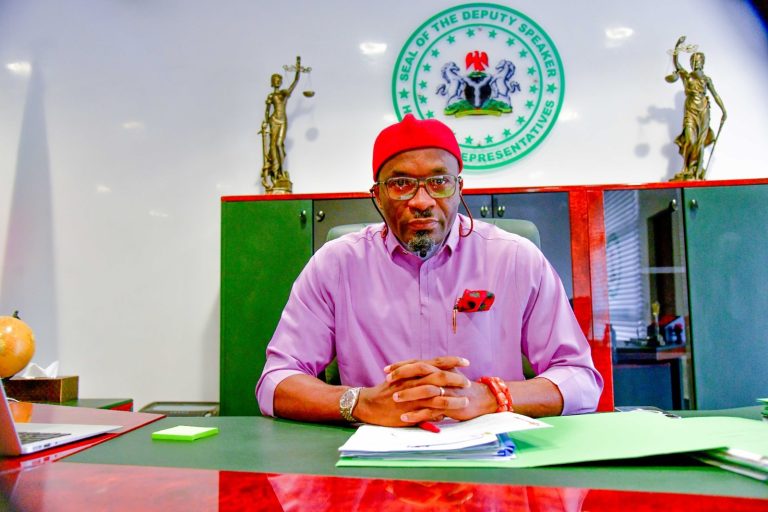From Ndubuisi Orji, Abuja
The deputy speaker of the House of Representatives, Rt. Hon. Benjamin Okezie Kalu, has said that Nigerians will have the final say on the clamour for abolition of death sentence in the country.
Kalu, according to a statement by his Special Assistant, on Press Affairs, Udora Orizu, stated this in Abuja while receiving a delegation from the Death Penalty Project, led by officials of the British High Commission.
The deputy speaker noted that there is a need for a robust debate on the issue, owing to the diverse opinion on whether or not to abolish death penalty in the country.
According to him, “internationally, there is a growing trend toward the abolition of the death penalty, with over 130 countries having abolished it in law or practice. This shift reflects a global understanding that justice must incorporate rehabilitation and restorative practices rather than solely punitive measures.
” In November 2024, the UN General Assembly’s Third Committee approved a resolution for a global moratorium on executions, aiming for full abolition, which was adopted on December 17, 2024, marking the tenth resolution since 2007 advocating for a moratorium, with support increasing from 104 states in 2007 to 130 in 2024, while opposition has declined.
“Notably, Nigeria abstained from the recent vote among 22 abstaining states. This trend indicates a strong movement towards the universal abolition of the death penalty. Within the African Union, 48 of 55 countries are now abolitionist in law or practice, with only Egypt and Somalia carrying out executions in 2023.”
Kalu added that “the African continent is advancing towards the abolition of the death penalty more rapidly than any other region, with six countries having eliminated the death penalty for all crimes or for ordinary crimes in just the past four years (since July 2021).
“We are willing to collaborate with you and have further engagements as we know that aligning our laws with international best practices enhances Nigeria’s reputation on the global stage.
“There’s no bill before the House of Representatives at the moment to address this issue as we speak, but there’s an intention for us to have conversations around it. I’m trying to give it legal framework by presenting it as a bill. We are considering presenting it before the parliament for debate, for us to know whether or not is what our society needs at the moment.
“It will pass through various stages of public hearing to allow the public make contribution on this subject matter. We are positive that our willingness to engage further on this discussion will send a clear message that we are committed to upholding human rights and ensuring that our criminal justice system reflects fairness and proportionality.”
The Co-founder and Co-Executive Director of The Death Penalty Project, Saul LeurFeund,who led the delegation, had told the deputy speaker that the visit was to seek the collaboration of the Nigerian parliament in thr campaign for the abolition of death penalty in the country.
